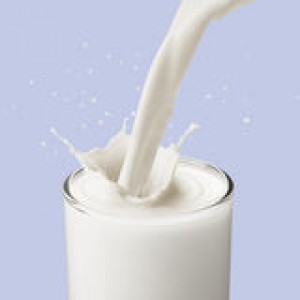FrieslandCampina reports “dynamic” year
13 Mar 2015FrieslandCampina has reported revenue stable at €11.3 billion excluding currency translation effects, an increase of 2.2%. Corrected for one-time items and currency translation effects, profit was down by 13.1%. “In 2014 Royal FrieslandCampina’s results were more influenced by external conditions than in other years,” said Cees ’t Hart, CEO. “The year 2014 could accurately be […]

 FrieslandCampina has reported revenue stable at €11.3 billion excluding currency translation effects, an increase of 2.2%. Corrected for one-time items and currency translation effects, profit was down by 13.1%.
FrieslandCampina has reported revenue stable at €11.3 billion excluding currency translation effects, an increase of 2.2%. Corrected for one-time items and currency translation effects, profit was down by 13.1%.
“In 2014 Royal FrieslandCampina’s results were more influenced by external conditions than in other years,” said Cees ’t Hart, CEO. “The year 2014 could accurately be described as ‘dynamic’. Although the disappearance of the EU milk quota will quite possibly lead to even more volatility on the dairy market, the prospects for FrieslandCampina and the member dairy farmers remain positive. The company is well positioned.”
Looking forward, FrieslandCampina said that, at a global level, the supply of raw milk and the demand for dairy products form a precarious balance. After more than 30 years, the milk quota for dairy farmers in the European Union will expire on 1 April 2015. Worldwide, the volume of milk supplied over the whole of 2015 is expected to be 2 to 4% more than in 2014.
The company anticipates that, in 2015, the demand for dairy products will increase slightly. The expectation is that in Asia and Africa it will be mainly the growing middle class that profits from economic recovery. As a result of the lower price level of dairy products, it is possible that consumers in emerging markets will also once again be able to afford more dairy products. The relative cheapness will mean that dairy products from the zone will be better able to compete against other suppliers from countries with different currencies, so more dairy products can be exported. China’s need for dairy products and raw materials is difficult to estimate. Whether, or when, the Russian boycott of western agricultural products will be lifted is equally unpredictable. But even if the boycott is lifted, demand in Russia is not expected to recover quickly, FrieslandCampina said. Consumers in Europe will remain price-conscious and, in part as a result of this, the competition from other suppliers and private labels will continue increasing.
In 2015, FrieslandCampina anticipates volume growth from infant nutrition in Asia and Africa and also expects it will once again be able to achieve volume growth with ingredients and dairy-based beverages. The recovery of the growth of dairy-based beverages will take place primarily outside of Europe. Expenditure on advertising and promotion will increase to support this growth and strengthen the brand positions and market shares. Expenditure for research & development will increase slightly. Investments in infrastructure and production capacity are expected to total around 600 million.
In view of the uncertainties mentioned, FrieslandCampina is not making any concrete predictions regarding the expected results for 2015. Taking a longer-term view, the company said that the outlook remains positive. As the world’s population grows and welfare increases in many regions the demand for food, and in particular food rich in nutrients including dairy products, will continue rising.